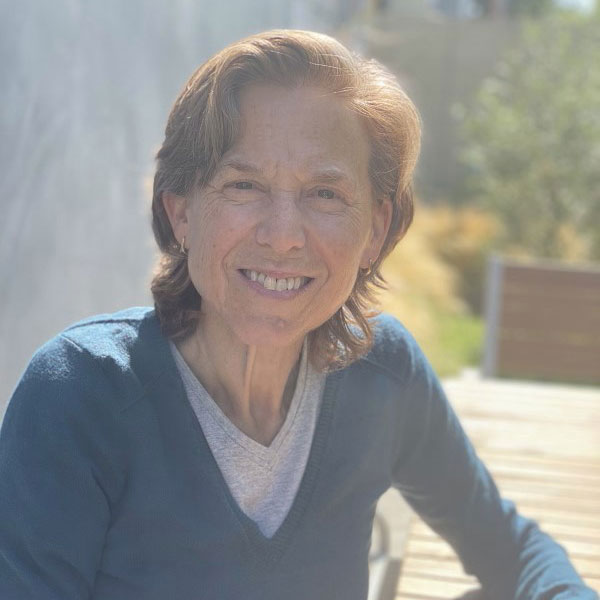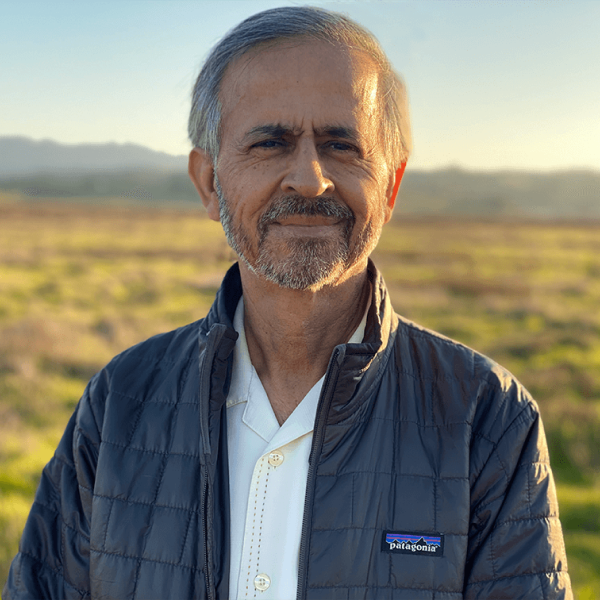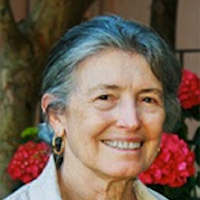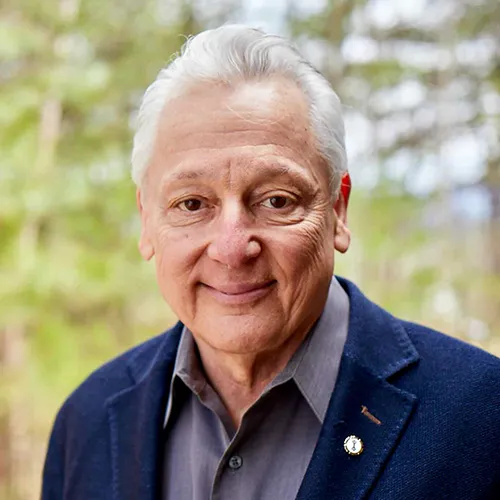June 19th - July 31st
A Six-Week Online Course with Melissa Schwartz
World-System and cultural crises are unfolding around the world in various communities and societies. Social healing practitioners are needed at scale to respond to these cascading crises. Social Healing practitioners facilitate, coach, and lead social healing practices. These practices enable the development of whole persons and whole systems across multiple professional domains, contexts, and levels of practice. The transformation of collective trauma is the primary intent of practicing the art and science of social healing.
This course explores personal, historical, cultural, and archetypal perspectives to transforming trauma. Participants in this course will engage in collaborative inquiry into aesthetic, psychological, and political responses which bring about social healing and cultural renewal.
Through active dialogue participants and presenters engage complex issues of climate change, economic injustice, intimate violence, stereotyping and scapegoating, and ethnic conflict, while exploring the practices that might create conditions of social healing such as restorative justice, rebuilding trust in the aftermath of trauma, the power of empathy, and the role of awe in recasting our vision of the world. These principles and practices have been the focus of the Center for Social Healing established in 2009 at Meridian University.
Course Modules
- Dissociation, Disembodiment, and Distraction
- Developmental and Complex Trauma
- Empathy Practices
- Contemplative Practices
- Intergenerational Transmission of Interpersonal Experience
- Restoring Memory and Cognititon
- Character Persists: Habits and Patterns are Like Stuff
- Physiological and Neurological Effects of Traumatic Stress
- The Cage of Addictive Patterns
- Somatic Practices Affect-Regulation Practices
- Projection, Splitting, and the Need for Enemies
- The Dialectics of Repression and Oppression
- Systemic Institutionalization of Gender, Racial, Ethnic, and Economic-based Oppression
- Evolution, Development, and Dissociation
- Social Fields and Trans-generational Trauma
- The Aesthetics of Healing and Practice of Reconciliation
- Restorative Justice Practices
- Reconciliation as Transformative Healing
- Conflict Transformation Practices
- Accountability Practices
- Cultural Leadership and Social Healing
- Refinding the Transgressive Imagination
- Engaging and Embodying Archetypes
- Narrative Practices and Active Hope
*Course modules are illustrative. Faculty build dynamic course content and class structure aligned with and beyond the listed modules.
Convening Faculty

Melissa Schwartz
Melissa Schwartz, PhD is the Chief Academic Officer at Meridian University where she guides integrally-oriented programs in Education, Business, and Psychology. The Director of Meridian’s Center for Transformative Learning, Melissa is dually licensed as both a psychologist and as a Marriage and Family Therapist (MFT). She serves as a reviewer for the American Psychological Association’s Journal, Psychology of Women Quarterly, and the California Psychological Association’s Office of Professional Development. As well, she serves as a Subject Matter Expert for California’s Board of Behavioral Sciences in the continual development of the state’s MFT licensure examination. Melissa’s research interests are in the areas of adult development, the psychology of women, integral transformative assessment, and the role of culture in transformative learning.

Melissa Schwartz
Melissa Schwartz, PhD is the Chief Academic Officer at Meridian University where she guides integrally-oriented programs in Education, Business, and Psychology. The Director of Meridian’s Center for Transformative Learning, Melissa is dually licensed as both a psychologist and as a Marriage and Family Therapist (MFT). She serves as a reviewer for the American Psychological Association’s Journal, Psychology of Women Quarterly, and the California Psychological Association’s Office of Professional Development. As well, she serves as a Subject Matter Expert for California’s Board of Behavioral Sciences in the continual development of the state’s MFT licensure examination. Melissa’s research interests are in the areas of adult development, the psychology of women, integral transformative assessment, and the role of culture in transformative learning.
Contributing Faculty

Aftab Omer
Aftab Omer, PhD is the president of Meridian University which offers degree and professional programs globally, emphasizing the power of transformative learning.
He is a sociologist, psychologist, developmentalist, and futurist. Raised in Pakistan, India, Hawaii, and Turkey, he was educated at the universities of M.I.T, Harvard and Brandeis. His publications have addressed the topics of transformative learning, dialogic capability, developmental power, cultural leadership, civil society, generative entrepreneurship, and the power of imagination.
Aftab’s advising work focuses on team development and on leveraging the creative potentials of conflict, diversity, and complexity. Formerly the president of the Council for Humanistic and Transpersonal Psychologies, he is a Fellow of the International Futures Forum and the World Academy of Arts and Sciences.

Eleanor Criswell
Eleanor Criswell received her Bachelor’s and Master’s from the University of Kentucky and her Doctorate from the University of Florida. She has been a professor of psychology at Sonoma State University since 1969 and has formerly been its Chairperson. She is the editor of the journal, Somatics, and the Director of the Novato Institute for Somatic Research and Training. As a counseling psychologist, she maintains a private practice in psychotherapy and somatics and is the author of Somatic Yoga and Somatics and Biofeedback.

Fleet Maull
Fleet Maull, PhD is an author, meditation teacher, mindset coach, social entrepreneur and peacemaker who works at the intersection of personal and social transformation. He founded Prison Mindfulness Institute and National Prison Hospice Association, catalyzing two national movements, while serving a 14-year mandatory-minimum federal drug sentence, 1985 to 1999.
He also founded the transformational education platform Heart Mind Institute and co-founded the Engaged Mindfulness Institute where he trains trauma-informed mindfulness teachers who work with individuals and communities impacted by trauma and marginalization. He has served on the leadership team for the annual Auschwitz-Birkenau Bearing Witness Retreat for more than 20 years. He co-founded the Rwanda Bearing Witness Retreat and has trained genocide survivors as volunteer trauma para-counselors working in villages throughout Rwanda.
He is a Roshi (Zen master/senior teacher) in the Zen Peacemaker Community, a senior Dharma teacher in the Shambhala-Tibetan Buddhist tradition, and leads meditation retreats worldwide. He developed Neuro-Somatic Mindfulness or NSM, a deeply embodied, neuroscience and trauma informed approach to mindfulness & awareness meditation practice that facilitates self-healing, self-regulation, and awakening. He founded both the Global Resilience Summit and the Expanded States of Consciousness Summit and co-founded The Best Year of Your Life, SummitPalooza, Psychedelic-Assisted Therapy Global Summit, and The Self-Care Summit.
Dr. Maull is the author of Radical Responsibility: How to Move Beyond Blame, Live Your Highest Purpose and Become an Unstoppable Force for Good; Dharma in Hell: The Prison Writings of Fleet Maull, and the Resilient C.O.: Mindfulness-Based Wellness & Resiliency for Corrections Professionals.


Course Structure
- Seven-week online course from June 19, 2023 through July 31, 2023.
- Six, live, 75-minute Zoom sessions with faculty held Mondays at 10:00 am PT (Pacific Time) and recorded for participants who cannot join every session live. Note: There is no live class during Week One.
- Reading resources, networking, and emergent community outcomes.
- Content and collaboration via Meridian's social learning platform.


Course Schedule
First Live Course Session
Second Live Course Session
Summer Break
Third Live Course Session
Fourth Live Course Session
Fifth Live Course Session
Sixth Live Course Session
Course Fees
$250
- Live video classes
- Access to recordings on course platform
- Course platform community and written resources
- Participant launch of ongoing Community of Practice after the course
Accreditation
Meridian University is accredited by the Western Association of Schools and Colleges (WASC) - a higher education accreditor recognized by the United States Department of Education. WASC is also the accreditor for Stanford University, UCLA, and the University of California at Berkeley.
Frequently Asked Questions
Meridian’s online courses are conducted via the University's own learning platform.
Our online courses promote community learning, through strong interactive engagement with fellow students and faculty as well as live video sessions with faculty.
You will need an email account, a high-speed internet connection, and access to a computer, iOS or Android device.
If you are planning to attend the course video calls live, you will need a webcam and microphone for your device. (Course video calls are conducted with participants video-enabled.)
Live 75 to 90-min video sessions with faculty and fellow students will be conducted throughout the course. Each week's live video call will be recorded and posted on the course platform.
Video presentations, readings, discussions and learning activities will be accessible asynchronously and may be completed on participants' own schedule. Course resources and recordings will remain available up to 30 days after the close of the course.
Full refunds are available until two (2) days before the course begins, by request via email.
You do not need to apply to a Meridian graduate degree program to take this online course. This course is one of Meridian’s open-enrollment courses
The course support team will be available to assist from start to finish. Please send your questions/requests/issues to ctl@meridianuniversity.edu
Convening faculty generally lead each live session. Contributing faculty typically contribute in one of the live course sessions. Course resources address the work of both convening and contributing faculty.
Meridian has institutional and federal financial aid options for our graduate degree programs. This open enrollment course does not have financial aid or payment plans available.